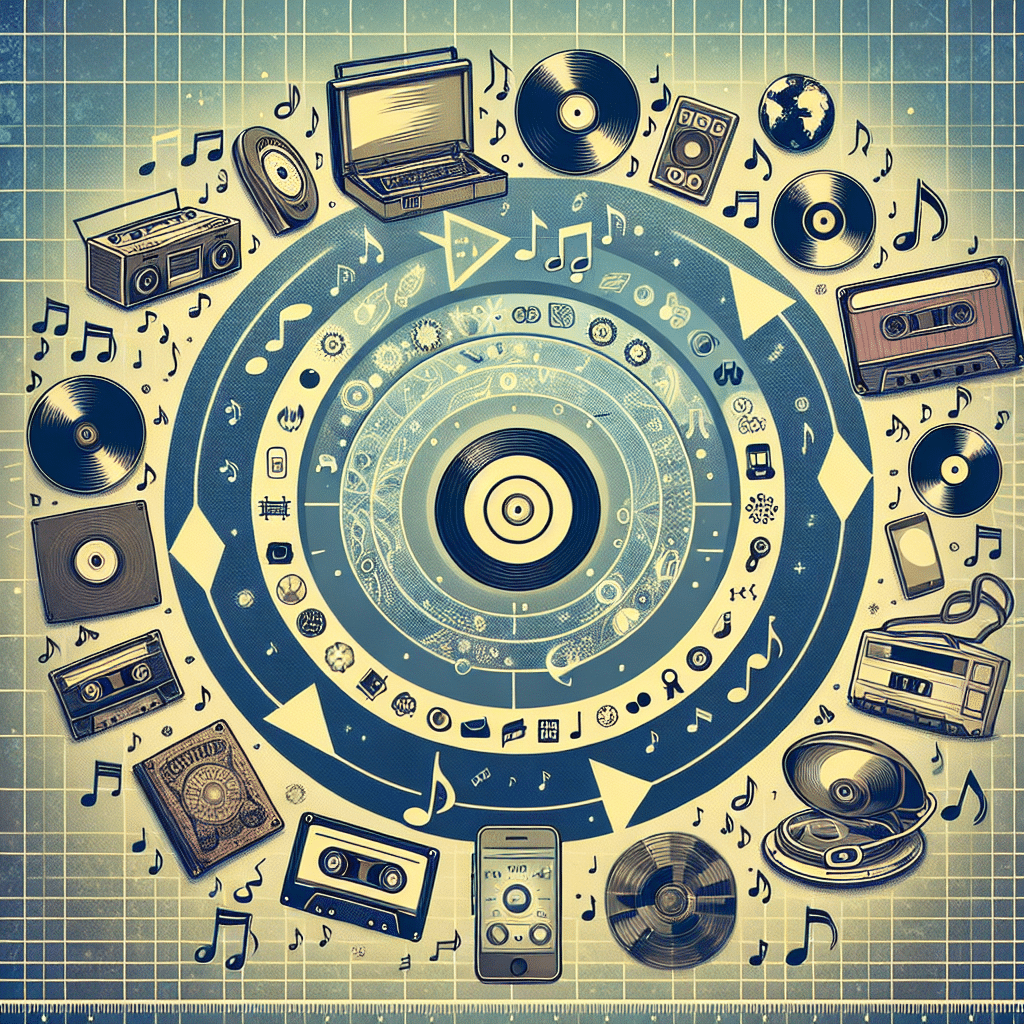From Britney to Billie: A Journey Through the Best Pop Artists in History

Introduction
Pop music has been a transformative force in the music industry since its inception. Serving as a mirror to society, pop reflects cultural shifts, technological advancements, and changing trends in public taste. The genre has, over the decades, produced iconic artists who have not only defined their eras but also left a lasting legacy that continues to resonate today. This article embarks on a journey through the best pop artists in history, exploring the musical landscape from the glitzy reign of Britney Spears to the raw authenticity of Billie Eilish, delving into the historical context that shaped them, the key artists who blazed the trails, present trends, and the cultural impact these artists have made.
Historical Context
The Evolution of Pop Music
Pop music, a term derived from "popular music," emerged in the mid-20th century with roots in rock and roll, soul, and even classical elements. The 1960s marked a significant revolution in popular music with artists like The Beatles and The Supremes, who brought new musical styles and ideas to a mainstream audience. The subsequent decades saw the emergence of disco, new wave, grunge, and hip-hop, all of which influenced the sound and style of artists in the pop genre.
As technology advanced, particularly with the advent of music videos and digital streaming, the landscape of pop music began to shift dramatically. MTV's launch in 1981 revolutionized how audiences consumed music. It introduced the visual element as a critical piece of an artist's identity, paving the way for pop icons like Madonna and Michael Jackson, who harnessed the power of imagery in their performances.
See Also: Climbing to the Top: A Deep Dive into This Week's Pop Music Rankings
Climbing to the Top: A Deep Dive into This Week's Pop Music RankingsIn this dynamic environment, Britney Spears emerged in the late 1990s as a quintessential pop princess, epitomizing the polished production and catchy hooks that defined the era, while today’s reigning pop stars like Billie Eilish are reshaping what it means to be an artist in the 21st century.
Key Artists
Britney Spears: The Pop Princess
Britney Spears—often regarded as the quintessential pop icon of the late 1990s and early 2000s—debuted with "...Baby One More Time" in 1998. With her catchy melodies, choreographed dance moves, and youthful persona, she not only topped charts but also defined the trap of music video culture. Spears' influence extended beyond her music; she became a symbol of female empowerment, as well as a subject of discussion around media treatment of young women. Her struggle with mental health and autonomy has sparked important conversations about celebrity culture and the pressures that come with it.
Madonna: The Queen of Reinvention
Madonna's career spans over four decades, consistently pushing boundaries with her provocative imagery and bold statements on sexuality and gender. From "Like a Virgin" to "Like a Prayer" and beyond, she has seamlessly navigated genres and styles, influencing generations of pop stars to embrace innovation. Her ability to reinvent herself while staying relevant is a hallmark of her legacy. Madonna's impact on feminism within music and her role in LGBTQ+ advocacy have further solidified her status as a cultural icon.
Michael Jackson: The King of Pop
See Also: From TikTok to Top 40: How Viral Trends Shape Modern Pop Hits
From TikTok to Top 40: How Viral Trends Shape Modern Pop HitsMichael Jackson, dubbed the King of Pop, left an indelible mark on the music industry with hits like "Thriller" and "Billie Jean." His integration of intricate dance routines, groundbreaking music videos, and unparalleled showmanship set new standards. Jackson's fusion of pop with other genres, such as rock and funk, showcased his versatility and fueled the genre's evolution. His legacy as a performer, despite complex controversies, cements him as a foundational pillar in the history of pop music.
Billie Eilish: The New Wave
In stark contrast to the glossy aesthetics of early 2000s pop, Billie Eilish burst onto the scene with her unique sound characterized by whispery vocals and dark, introspective themes. Along with her brother Finneas, she crafts deeply personal music that addresses mental health, societal issues, and youthful angst. Eilish has successfully created a strong visual and musical identity—aiming for authenticity over superficiality. Her Grammy wins in 2020 as the youngest artist ever to take home the four major categories demonstrated the shift towards appreciating more vulnerable, genre-blurring pop artistry.
Current Trends in Pop Music
Contemporary pop music is currently characterized by diversity and cross-genre collaborations. The lines between pop, hip-hop, R&B, and electronic music continue to blur. Artists such as Dua Lipa, The Weeknd, and Lizzo represent a new guard where genre boundaries are less rigid, reflecting broader cultural influences and society's evolving tastes. The rise of social media platforms like TikTok has propelled many artists, facilitating viral challenges that jumpstart careers overnight.
Vulnerability and authenticity are in vogue, as artists share personal struggles and real-life narratives through their work. Mental health discussions have become prevalent in lyrics and promotional campaigns, a trend led by artists like Eilish and Halsey who prioritize mental health awareness.
See Also: Pop Royalty: The Artists Who Defined a Generation
Pop Royalty: The Artists Who Defined a GenerationCultural Impact
Social Change and Representation
The evolution of pop from Britney to Billie highlights a remarkable shift in societal values and representation. While Britney's era was marked by an emphasis on beauty and perfection, today's pop artists reflect greater diversity in body types, races, and narratives. The industry increasingly prioritizes authenticity and personal stories, allowing artists to resonate more deeply with their fans.
Moreover, the advocacy for mental health awareness, LGBTQ rights, and racial equality through music symbolizes a broader commitment to social justice within the industry. Artists leverage their platforms to instigate change, raise awareness, and inspire their listeners to be critical of societal norms.
Economic Influence
The commercial success of pop music is undeniable, shaping not just the music scene but also fashion, advertising, and even social behavior. Major endorsements and collaborations with brands often hinge upon pop artists, further intertwining celebrity with consumer culture. The global marketing of pop music reflects the genre's power to shape public consciousness and influence market trends.
Conclusion
See Also: Catchy Beats and Powerful Voices: Exploring the Best Pop Artists of 2023
Catchy Beats and Powerful Voices: Exploring the Best Pop Artists of 2023From Britney Spears to Billie Eilish, the journey through the history of pop artists encapsulates the genre's growth and significance in popular culture. These artists have shaped their eras, influencing not only music but the broader cultural landscape, mirroring societal changes and aspirations. As we look to the future, the evolution of pop continues to remind us of its potential to unite, challenge norms, and inspire change in an ever-shifting world.
FAQs
Who are some other influential pop artists?
Other notable pop artists include Taylor Swift, Ariana Grande, Lady Gaga, and Justin Timberlake, each contributing uniquely to the evolution of pop music.
What is the significance of pop music in today's society?
Pop music serves as a cultural touchstone, reflecting societal values and changes. It often addresses pertinent issues like mental health, identity, and social justice, making it relevant and impactful.
How has technology influenced pop music?
See Also: Pop Culture Pioneers: Meet the Artists Changing the Face of Pop Music
Pop Culture Pioneers: Meet the Artists Changing the Face of Pop MusicTechnological advancements, especially in digital streaming and social media, have transformed how music is produced, distributed, and consumed, enabling artists to reach global audiences more easily than ever.
Why is vulnerability important in pop music today?
Vulnerability has become essential in pop music, as audiences seek authenticity and connection. Artists like Billie Eilish embody this trend by sharing personal struggles and emotions, creating a deeper bond with listeners.
If you want to know other articles similar to From Britney to Billie: A Journey Through the Best Pop Artists in History you can visit the category Pop.
